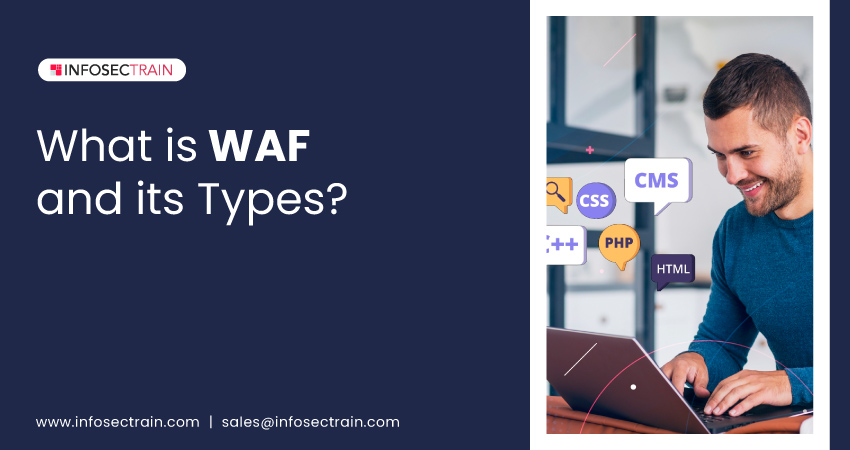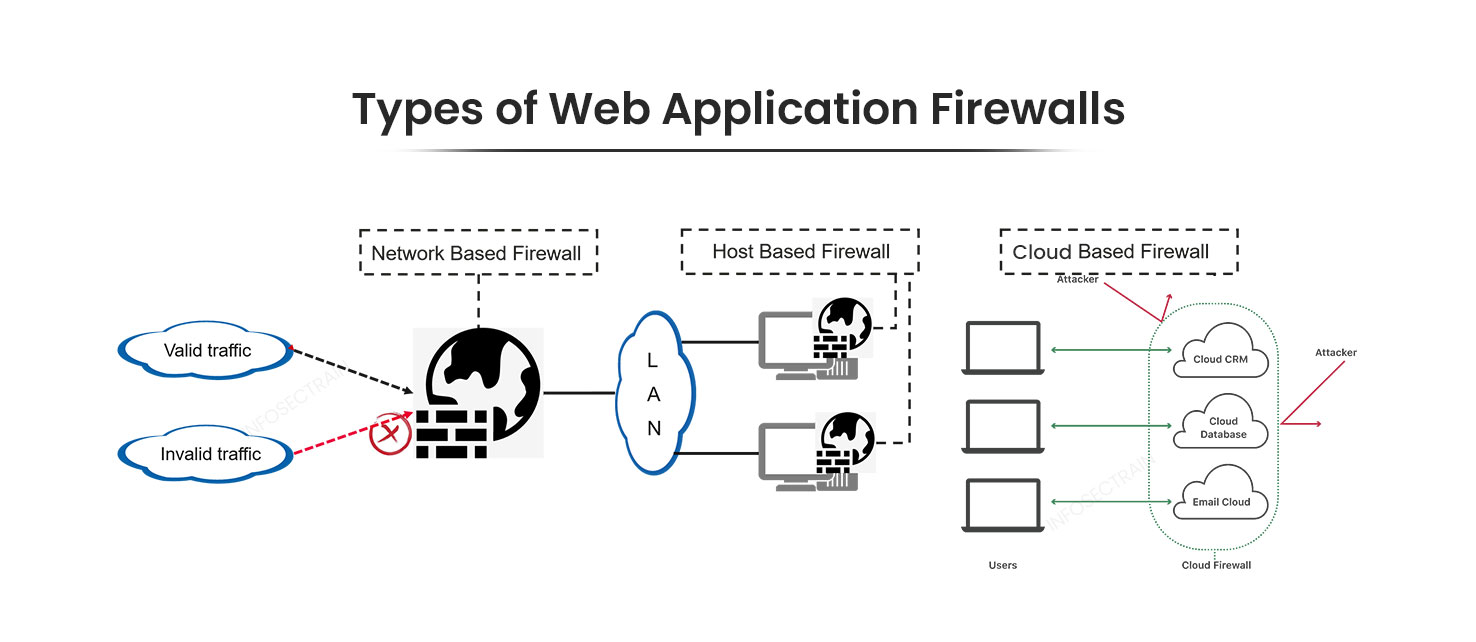What is WAF and its Types?
Today, enterprises of all sizes, from small to large, depend more on websites and web applications for many activities, including online transactions, shopping, work, communications, and other things. With the increasing use of web applications and websites, cyberattacks are becoming more sophisticated. Cybercriminals are increasingly targeting web applications to access your database and steal critical or secret data. Hence, it is vital for businesses to understand cyber threats and security measures to protect themselves and their users. And businesses need to keep their websites and web applications completely protected against fraud, emerging security risks, and data theft by deploying the best Web Application Firewall (WAF).

Web Application Firewall protects web applications and sensitive data, such as payment card data, customer records, etc., from various attacks, including SQL injection, zero-day attacks, cross-site scripting, cross-site forgery, and file inclusions, among others.
In this blog, we will explain what a Web Application Firewall (WAF) is, its different types, and its benefits. We will also list the best Web Application Firewalls (WAFs).
Table of Contents
What is WAF?
Types of WAFs
Benefits of WAFs
Top Web Application Firewalls (WAFs)
What is WAF?
A Web Application Firewall (WAF) is a security layer between the web application and the internet against cyberattacks. It monitors, infiltrates, or prevents any incoming or outgoing malicious activities or HTTP/S traffic that might reach the web servers and applications. It identifies malicious traffic by adhering to a set of policies or rules. It is particularly advantageous for businesses that offer online banking services, e-commerce sites, and any other web-based services.
Types of WAFs
There are generally three types of Web Application Firewalls (WAFs): Network-based, Host-based, and Cloud-based; these vary in cost, maintenance required, and speed.
 1. Network-based WAF:
1. Network-based WAF:
Network-based Web Application Firewall (N-WAF) is typically hardware-based and installed locally within a Local Area Network (LAN). It is implemented through the hardware appliance to track and filter data packets going to and coming from a website or web application. It necessitates storage and continuous maintenance of physical equipment, so it is quite expensive.
2. Host-based WAF:
Host-based Web Application Firewall (HWAF) is a software-based WAF that is usually installed in a Virtual Machine (VM) rather than an actual hardware device. The Host-based WAF is more adaptable and may be implemented in the cloud or within an on-premises system. It is a substantially less expensive option than Hardware-based WAFs, but it takes longer to monitor and filter traffic, slowing the web application. In addition, it is challenging to implement because it requires a lot of local server resources and can be expensive to maintain.
3. Cloud-based WAF:
Cloud-based Web Application Firewall (CWAF) is a cheap, simply deployable solution that usually does not require an upfront cost. Users pay monthly or yearly for Security-as-a-Service and have fewer resources to operate. The user does not need to physically or virtually install any software because it is hosted in the cloud. Also, it can provide a continuously updated service to defend against emerging threats without requiring additional effort or cost from the customer’s end. However, as the WAF is solely managed by the service provider or other third party, there is limited potential for modification.
Benefits of WAFs
- It can recognize and prevent potential weaknesses or vulnerabilities in web-based applications.
- It provides security for any size of business web applications to manage customers’ sensitive data from being compromised.
- It will track and prevent unauthorized traffic to a web application that a firewall cannot block.
- It features robust default rule sets.
- It defends against zero-day vulnerabilities.
- It aids in preventing cookie poisoning, also known as session hijacking.
- It increases the speed of your website with the help of a Content Delivery Network (CDN).
- It offers real-time logging and reporting for instant visibility.
- It prevents Distributed Denial of Service (DDoS), SQL injection, comment spam, and Cross-Site Scripting (XSS) attacks.
Top Web Application Firewalls (WAFs)
- Azure Web Application Firewall
- AWS WAF
- Wallarm API Security Platform
- Cloudflare WAF
- NGINX App Protect
- Oracle Dyn WAF
- F5 Distributed Cloud WAF
- Barracuda Web Application Firewall
- Imperva Cloud WAF
How can InfosecTrain help?
To learn more in-depth about Web Application Firewalls (WAFs), you can enroll in InfosecTrain’s Certified Secure Software Lifecycle Professional (CSSLP) certification training course. InfosecTrain is the best place to begin a career in various IT security and cybersecurity with the help of certification training. Our skilled and experienced instructors provide all training.




 1800-843-7890 (India)
1800-843-7890 (India) 
